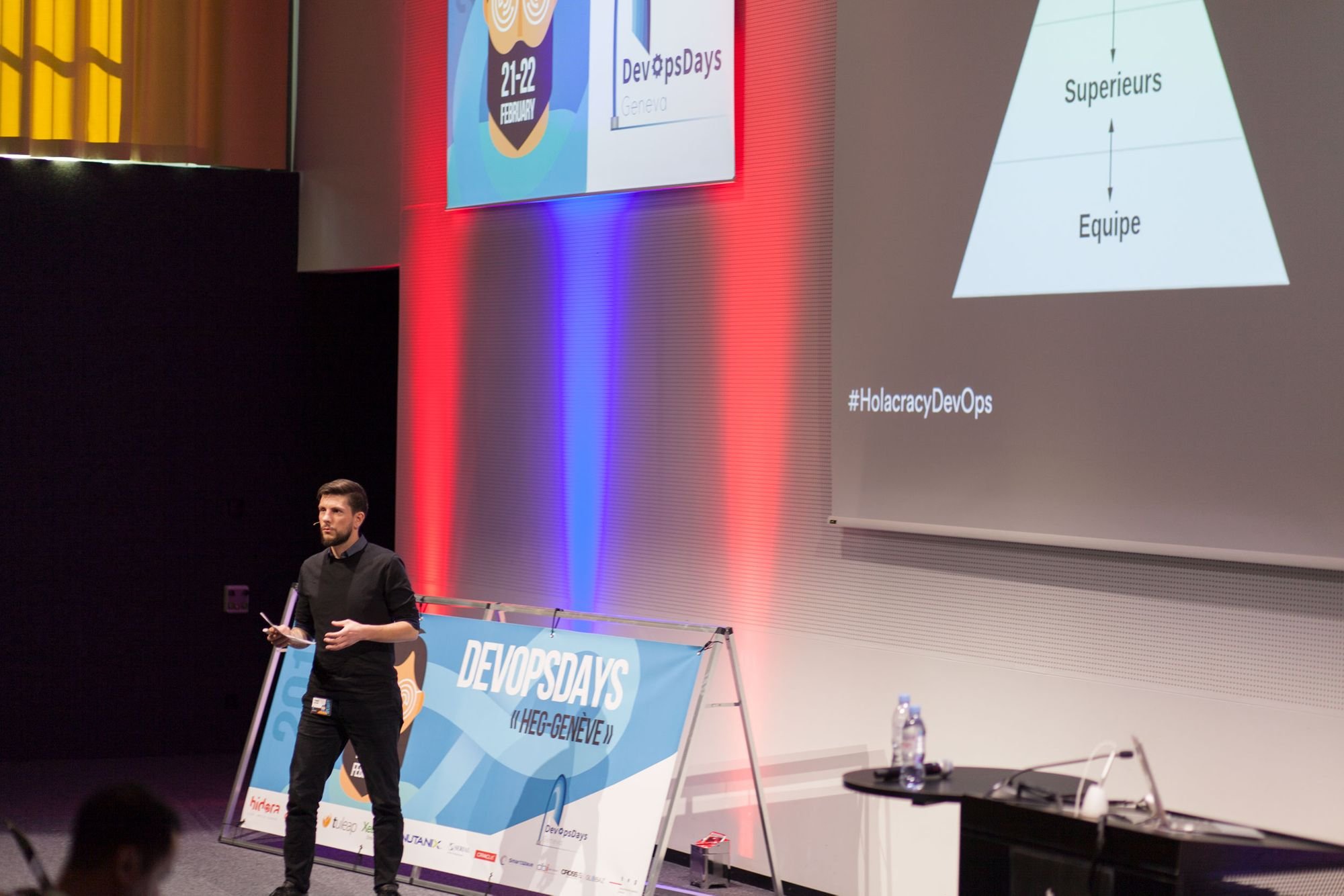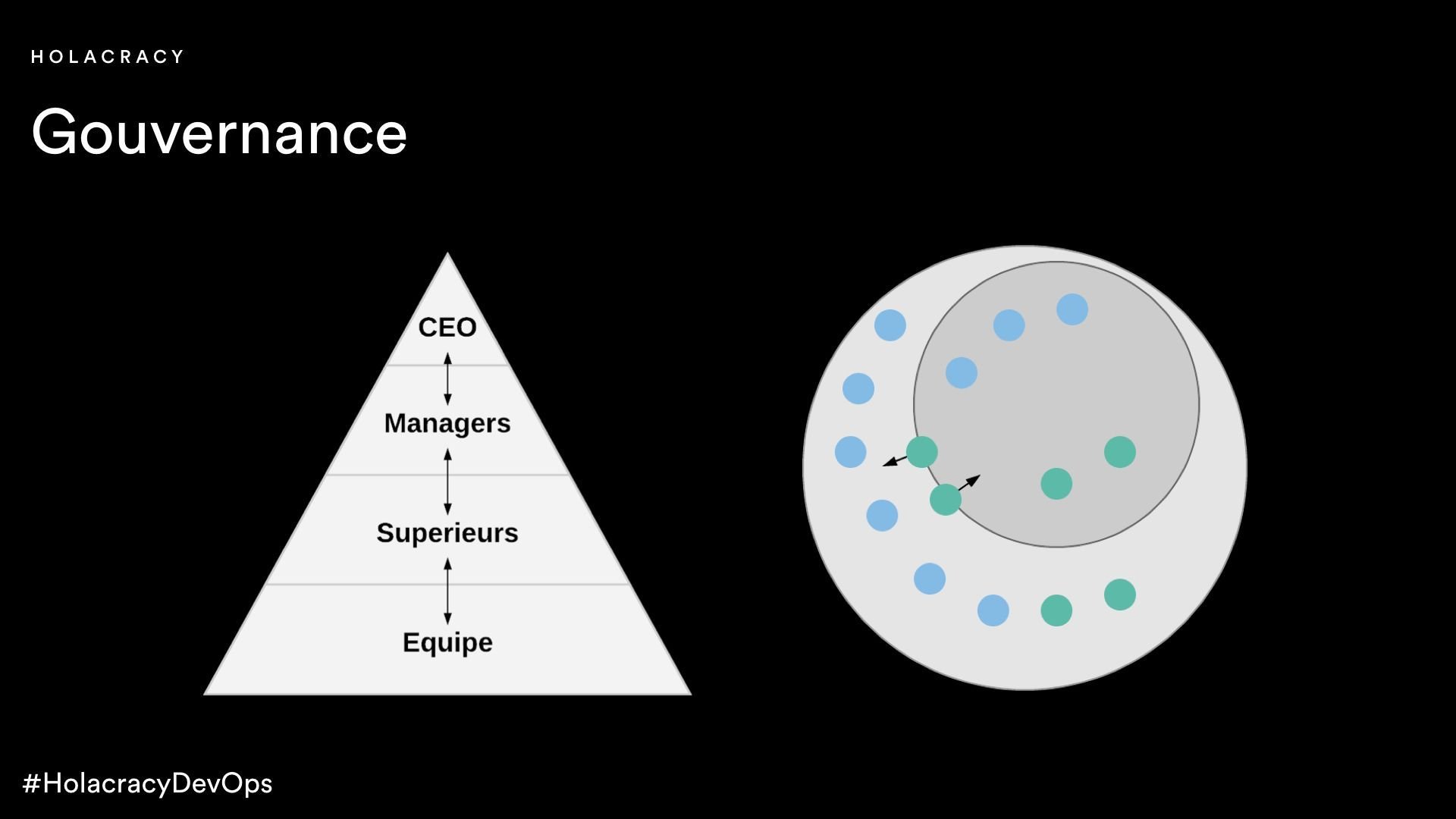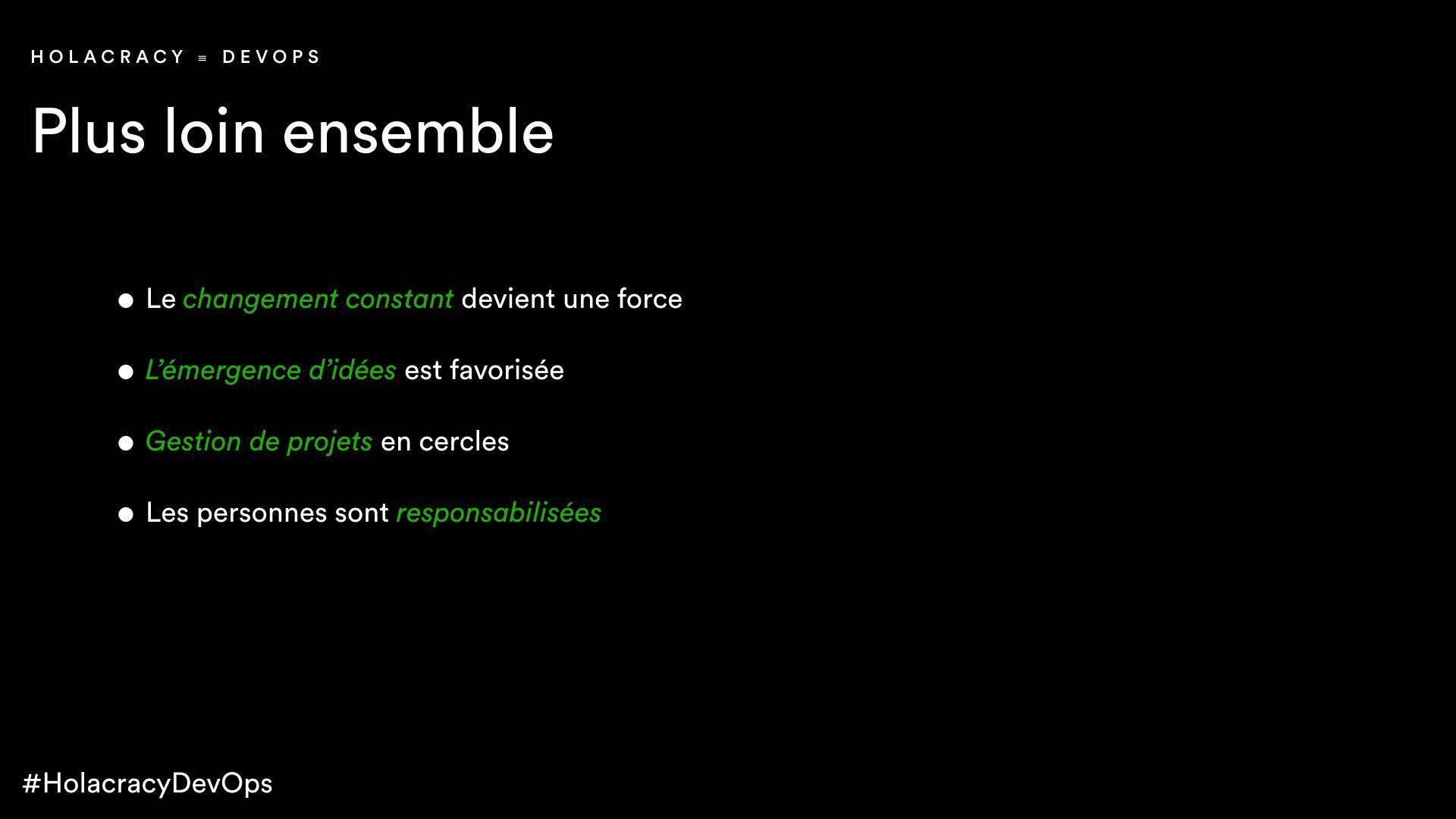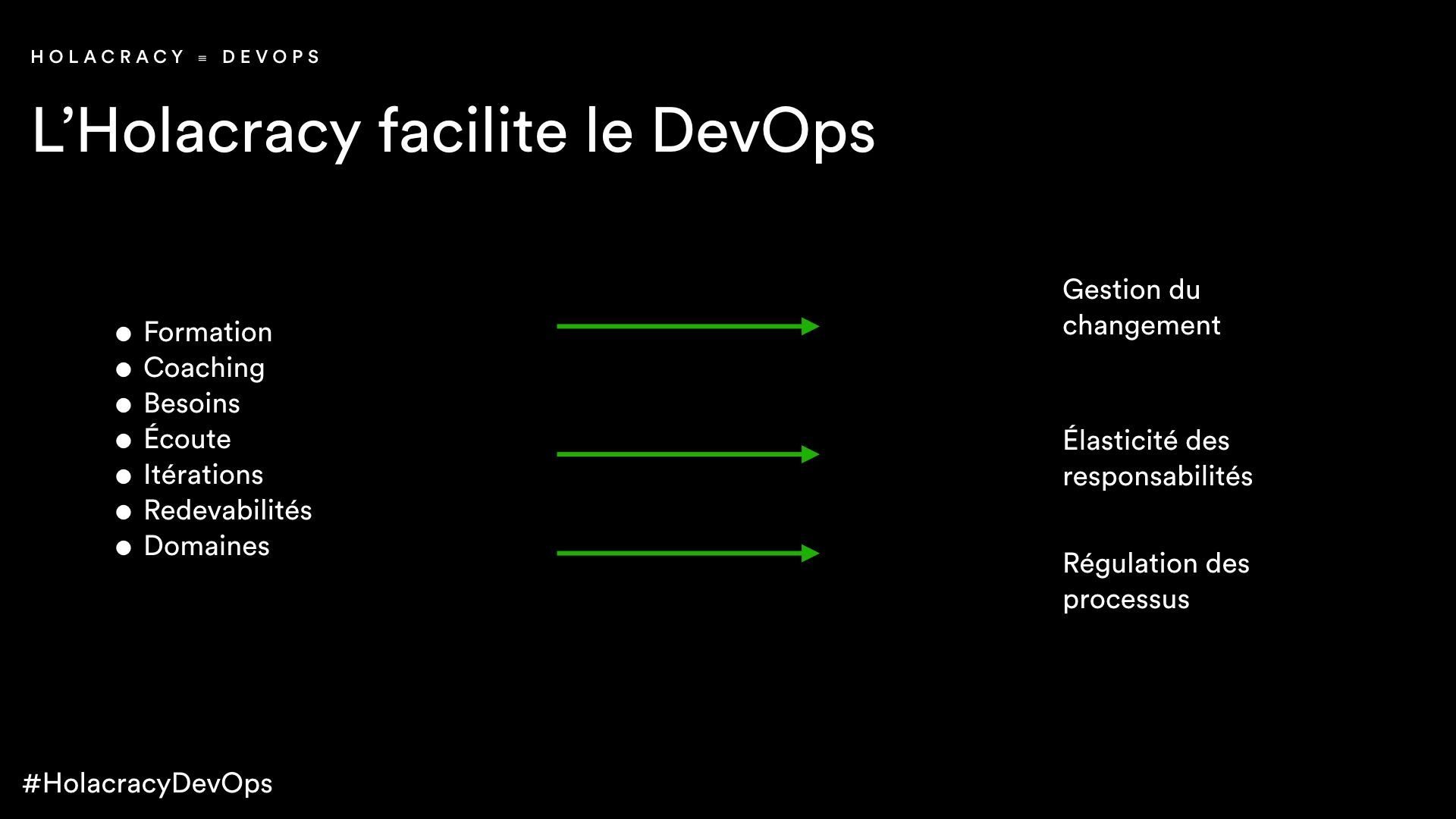Holacracy x DevOps
Two weeks ago we gave feedback at the DevOps Days in Geneva on our joint approach to Holacracy and DevOps. Here are some highlights.
Holacracy & DevOps go hand in hand.
If Holacracy acts mainly on the governance of a company, which it redistributes to its members, it also sets up a system of differentiation of roles and people. This way, it pushes the whole organization towards a more fluid adaptation in case of a "surge" but also and especially to learn from each other.
On this point, DevOps joins it totally at a more technical level, but very real, since the role of this culture is to decompartmentalize the development and operational professions which are often in a confrontation since they are also placed at the end of the production chain. As a result, DevOps addresses more the operational activity of the company and less the governance.
In both cases, the prerequisite for the successful implementation of these systems and crops is a few common values:
Respect for the human being
Transparency
Taking the initiative
It goes without saying that if the decision makers do not share these values, it will be difficult to implement Holacracy as well as DevOps.
Holacracy as an alternative to a pyramidal vision of the company.
Moving from Predicting & Controlling to Feeling & Reacting
The hierarchy aims at giving the strategic privilege to the one who has the most visibility on the whole. In fact, this is often the case in traditional companies:
Opportunities or frictions are brought to the attention of decision makers, who decide whether to move forward or to leave these "tensions" aside.
In the first case, a market analysis is often performed.
We set up a team whose role is to establish a project perimeter and to come back to its superiors with an estimated budget requested from several providers.
The supervisor then decides to allocate budgetary and human resources to the project over a fixed period of time.
If the project launch works, then strategies are put in place to reduce the risk.
Predicting and controlling maintains the illusion of security, but leaves out several valuable things: the emergence of new ideas, initiative, organizational resilience, and most importantly... individual motivation.
While this approach has its merits, it becomes difficult to apply when it is impossible to predict what will happen next. This happens in chaotic or complex contexts: the humanitarian sector, the media, or many so-called fast-moving economies based on innovation and disruption.
Distributed governance, on the other hand, applies a simple principle: give those who feel tensions the freedom to propose solutions and to test them. Structurally, the organization no longer anticipates problems by applying the traditional risk management approach. Instead, it leaves it up to those primarily concerned to communicate with each other to find solutions. This has four advantages:
Knowledge transfer is reinforced.
Resource investments are limited to the essentials,
Many solutions are being tested in parallel.
This results in a fluid organization, but above all in permanent evolution.
A virtuous circle is created by putting the two systems together.
Continuous Evolution & Organizational Resilience
In the end, Holacracy facilitates DevOps. Indeed, this distributed governance model offers great organizational clarity. Moreover, it is a bare bones system allowing to integrate all the desired processes. If we had to evoke an image, it would actually be the organization's operating system (think Linux, Holacracy is Open-Source).
This documentation of operations within the organization benefits the DevOps culture in several ways: traditional silos are broken, the search for new solutions is always on, all processes are documented, and all business areas have the freedom to constantly evolve to adapt, iteratively.
Contrary to preconceptions, Holacracy is a very clear organizational model.
Conclusion
Holacracy and DevOps make a happy marriage, provided they are respected for what they are: an open-source distributed governance model and an IT culture. Integrating them to increase productivity without challenging the fundamental rules that sclerose the traditional enterprise will generate more frustration than it will open doors. However, even with the best of intentions, there are some mistakes to avoid if you go down this road:
Get a Holacracy coach to accompany you. A radical change of system can create a lot of frustration if it is not properly implemented.
Encourage the hiring of motivated profiles to step out of their comfort circle and take on new responsibilities. Some people just want a food job and are not interested in work that feeds them.
Avoid falling back into a traditional Boss-Employee structure. All forces will try to push you back into it if you don't consciously fight against it.
Exit tower
Our experience sharing was a great success and paves the way for more to come. We had the chance to present to a wide range of IT professionals, and it was an honor to see that it raised so many questions. Apart from the general interest, there were some aspects of our discussions that stood out for us:
Our interlocutors often proceeded by comparison with their current professional environment, which indicates that they are interested in change!
Many questions were directed at the viability of solutions like Holacracy in large structures. The answer is yes, it is viable. However, many of these concerns stem from a confusion between Holacracy and horizontal organization, beware, they are not the same!
We invite all those who have questions about the applicability of Holacracy to read 2 books that will surely address their doubts:




